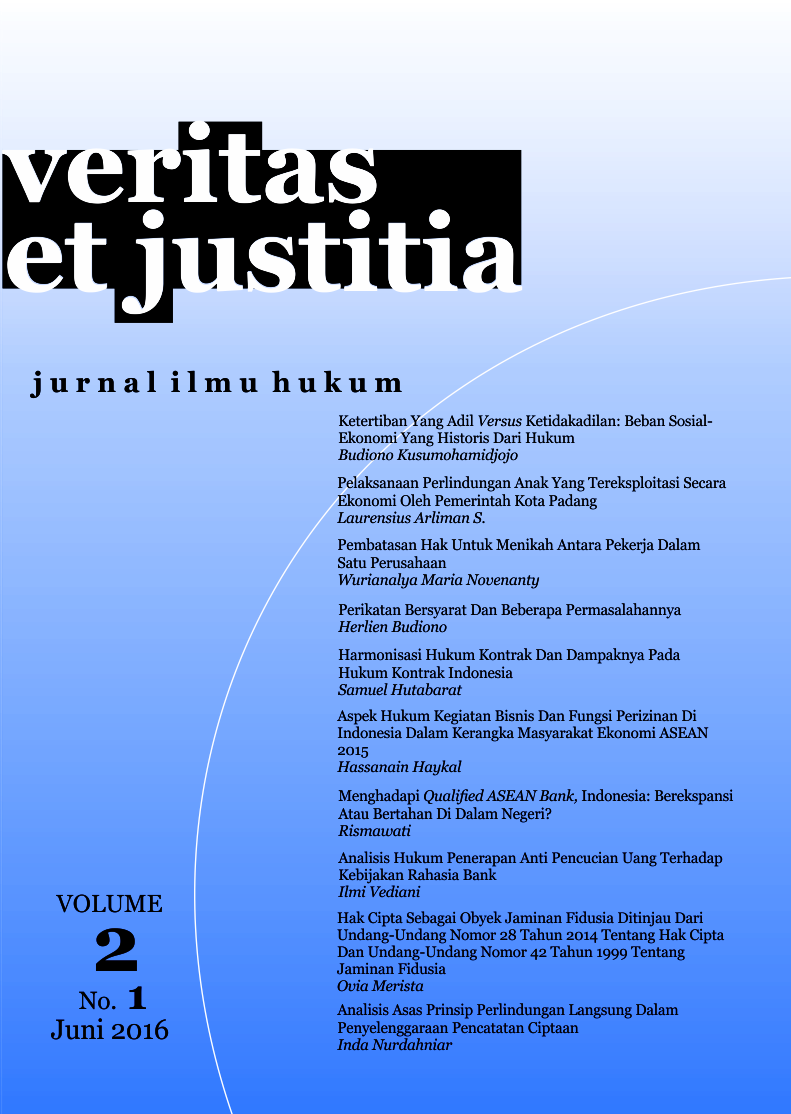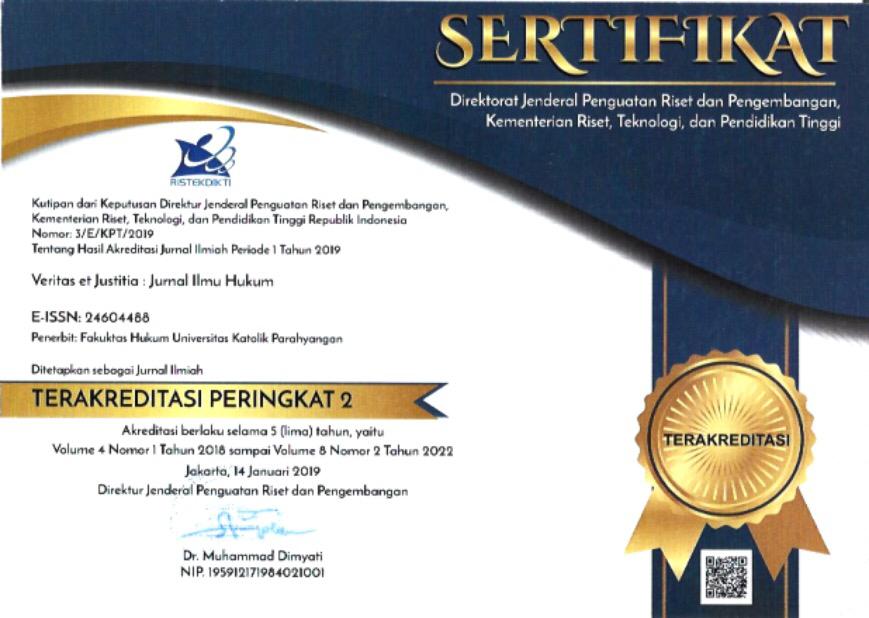PELAKSANAAN PERLINDUNGAN ANAK YANG TEREKSPLOITASI SECARA EKONOMI OLEH PEMERINTAH KOTA PADANG
DOI:
https://doi.org/10.25123/vej.v2i1.2076Abstrak
Children are our future and in their own time bear the responsibility to develop their own world. To enable them doing so, they should not be forced to work to earn a living or support their family. Children should be allowed to grow in the safety of a home, at school and at playgrounds. In this paper the author will explore children problems related economic exploitations, what policies are developed by the municipal government of Padang to protect children from economic exploitations and what are the obstacles in implementing these policies. One of the finding is that the Social and Manpower Service and the Family Planning, Women and Community Empowerment Board of the Padang municipal government develops training programs aiming to give exploited children practical skills in helping them to cope. Factors influencing economic exploitation of children are numerous and complex: lack of education, lessening of people’s adherence to religious norms, societal environment, shift in cultural values, economic problems, etc. Based on the above the author suggests that the municipal government should take cognizance of these factors when attempting to deal with the problem.
Keywords:
child, exploitation, economy, protection##submission.downloads##
Diterbitkan
Terbitan
Bagian
Lisensi
Authors who publish with this journal agree to the following terms:
Authors retain copyright and grant the journal right of first publication with the work simultaneously licensed under a Creative Commons Attribution License that allows others to share the work with an acknowledgement of the work's authorship and initial publication in this journal.
Authors are able to enter into separate, additional contractual arrangements for the non-exclusive distribution of the journal's published version of the work (e.g., post it to an institutional repository or publish it in a book), with an acknowledgement of its initial publication in this journal.
Authors are permitted and encouraged to post their work online (e.g., in institutional repositories or on their website) prior to and during the submission process, as it can lead to productive exchanges, as well as earlier and greater citation of published work.
The Journal allow the author(s) to hold the copyright and to retian publishing rights without restrictions.










